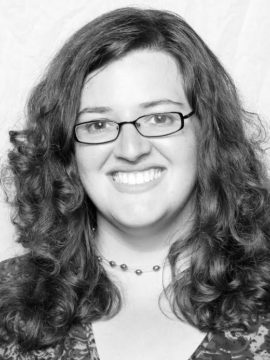Could an end of life doula, or amicus mortis help to midwife your death? ‘Doula’ is a Greek word for a woman who gives support, help, and advice to another woman during pregnancy and during and after birth. The word has now spread to cover the same style of care for someone who is dying.
Other expressions which cover support at the end of life are “midwife to the dying” and the Latin term “amicus mortis”, the friend of the dying.
In some ways birth and death are opposites but in many they are similar. In each case a person is being helped to move from one world to another – in the case of birth from the unknowable world before birth, in the case of death, to the unknowable world after.
Find out more about the world of the end of life doula.

The Australian Doula College has a website. It has a beautiful image of an adult’s hands holding a new-born’s feet. But it trains doulas to help people at the beginning and the end of life.
“There is no question that the mere thought of death is enough for many people to feel powerless and afraid,” says death doula, Belinda Brooks on her website.
By providing an opportunity for people ”to talk openly about our expectations, our fears and how we might prepare and educate ourselves,” this takes away a lot of fear about death and helps people feel more confident about what they will face, Belinda says.
Her work with her clients can take many forms but she doesn’t provide medical or legal advice. For these you will need the help of medical and legal professionals.
Belinda’s role is to bring healthy discussion and insights into managing many of the practical issues around death. This tends to be avoided in our society.
“A lot of what I do is advocacy. People may have ideas about the choices they would like to make at the end of their life but they don’t know where to start to bring those choices to reality.
“Having someone to help navigate through what can seem like overwhelming choices provides confidence and comfort,” she said.
“Palliative care doctors and nurses provide an invaluable service. But often they are incredibly overworked and under-resourced. Even though palliative care professionals can provide vital medical help, they can’t take as much time as they would like to, to help address some of the non-medical fears and concerns that a person has at end of life. So that’s where a doula can step in.”
An end of life doula can help ease pain and suffering.
“It’s important to remember that pain is not just physical. It can be spiritual.
“For example, a person’s important relationships in life mightn’t have been repaired, causing terrible suffering. This might be relationships with their children or partner. It might be a friendship that’s in trouble. But not having that relationship repaired is causing them pain.
“In another example, the person might be afraid they’re not going to be remembered. Or that their family or community may remember them in a way that’s not how they’d like to be remembered. That’s also painful.”
“Often people want to explore spiritual questions. Since they’re dying they want to really think about what happens after you die. Sometimes, when they put this into the context of their spiritual experiences, they want to talk about changes in the assumptions they’ve held over a lifetime.
“I had a client who was an atheist. She was having end of life visions, something very common in the dying. These happen to more than 70 per cent of people. She was an atheist. Yet she had started seeing her family members, especially her sister who had died decades previously.
“She found that disconcerting because such a spiritual experience was outside her understanding of atheism. So when the visions started that, ironically, led to a ‘crisis of faith’.
“She needed a way to put the two things together and to create a new understanding that was going to provide her with comfort.
“As an end of life doula, my personal belief cannot enter into the conversation I have with someone in this situation. We are, all of us, coming from our own set of spiritual beliefs and what mattered was not what I believed but what she believed. What she needed was to be able to tie these two things together: her belief in atheism and seeing her sister.
“We discussed medical reasons why the visions might be occurring. Were the medications she was taking causing them? Was it her brain chemistry at that time? Or was she having a religious experience?
“We got to a point where I helped her to understand that it didn’t matter what was causing the presence of her sister. She found it comforting that her sister was with her, whether it was an external God or her physical body that was manifesting this. Her sister was giving her enormous comfort.
“We lent into a place to help her simply appreciate that small fact.”
Further reading
For an earlier article on doulas, go to:
https://good-grief.com.au/have-you-heard-of-a-death-doula/
We also featured The Last Hurrah Funerals in A Belief Diverse Hurrah. One half of the team, Kimba Griffith, is an end of life doula and the other half Nastassia Jones is focussed on family centred care.
For more on The Australian Doula College, go to: http://australiandoulacollege.com.au/
For more about end of life doula Belinda Brooks, go to: http://www.belindabrooks.com/about
For the website of Helen Callanan, an end of life doula and trainer, go to: http://preparingtheway.com.au/

Dear Good Grief, I just lost what I see as my last link to my childhood. My grandfather helped my grandmother raise me. So I don’t believe in being completely prepared to lose a loved one, but your words do comfort. So, dear old friend, as far away that you are, I feel you close. Thank you. Missing you more now.